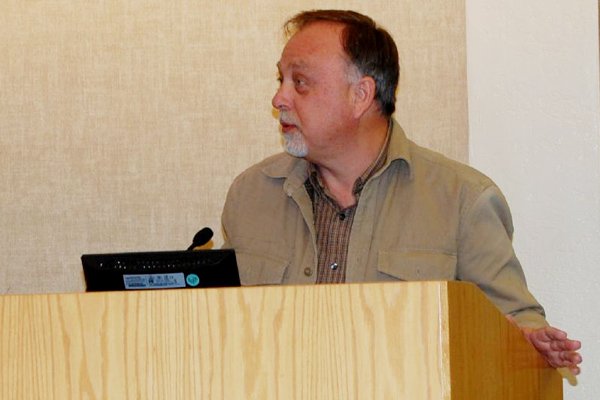The Council talked reduced rent for a downtown restaurant owner,
new retrofit requirements and possible changes to an alarm fee
ordinance Monday night. Before the Council met in closed session to
discuss offering a rent break in exchange for building improvements
to Gary and Joe Walton, operators of Lizarran Tapas Restaurant
downtown, city officials and Gary Walton debated the merits of
extending the offer, which was part of a previous renter’s lease
that expired in November.
A Gilroy City Council discussion over whether to continue to offer reduced rent to owners of a downtown restaurant didn’t take place entirely out of public earshot Monday night.
Before the Council met in closed session to discuss offering a rent break in exchange for building improvements to Gary and Joe Walton, operators of Lizarran Tapas Restaurant downtown, city officials and Gary Walton debated the merits of extending the offer, which was part of a previous renter’s lease that expired in November.
The city also made public a letter from Joe Walton to City Administrator Tom Haglund asking for the lease to be amended to allow the rent credits to continue.
According to city Finance Director Christina Turner, the rent for Lizarran, housed in the city-owned Old City Hall building, jumped from $1,250 a month to $3,250 when the rent credits expired.
Recent sidewalk repair has caused business to drop by 60 percent, Gary Walton told the Council.
Prior to opening, the Waltons invested more than $133,000 in leasehold improvements, according to the letter written by Joe Walton.
“It’s not a cheap building to maintain,” Gary Walton said. “It’ just too difficult for us.”
According to city records, Lizarran’s owners have not paid rent since the credits expired.
“We have to have a certain amount of business,” he said. “We ask for the same consideration you gave the previous tenants.”
When the Council reconvened from open session, Mayor Al Pinheiro announced there was “no disclosable report or action” to announce.
With the issue currently unsettled, Gary Walton said he’s not sure what the future of the restaurant will be.
He said was willing to continue working with the city on an agreement.
“This is one proposal,” Walton said. “There are alternatives.”
Councilman Perry Woodward said a restaurant owner asking for a rent break in the current economic times was not unusual.
Councilman Peter Arellano said the Council needed to ask Walton “tough questions” during this process.
“What we’re talking about is not our money. It’s not our building. It’s the taxpayers’ building,” Arellano said. “Are we trading someone’s good heart and commitment for a discount on the rent.”
Retrofit ordinance passed
The Council voted 7-0 to approve new ordinance that would allow downtown property owners to reopen their buildings following life safety retrofits instead of full retrofits.
Property owners who complete the basic retrofits – which would fix structural issues that would pose immediate risks during an earthquake – won’t have to purchase additional seismic updates for 10 years, unless there was a change in the building’s usage or additions or modifications exceeded 50 percent of the building’s value.
Property owners have one year to adhere to new retrofit standards downtown before they will face a $500-per month fine. After the second year, the fine rises to $1,000 each month.
Owners can be fined up to $15,000.
Under the city’s previous ordinance, building owners potentially could have faced a $10,000-per month fine.
Alarm fees
The city is looking into changing an ordinance that currently requires all home and commercial alarm owners to pay a $20 annual fee.
On Monday night, the Council voted 6-0 to keep the $20 annual fee and develop a database within the current ordinance, but only until new guidelines are crafted to remove the annual registration fee.
Councilman Woodward said he wasn’t a fan of the original alarm ordinance.
“It’s a tax. It’s a continuance of the expansion of government,” he said. “It’s just a bad idea. It’s line fining everyone who drives 20 bucks because some people speed.”
Under the city’s current ordinance, all alarm owners must register and pay a $20 fee each year.
The reason for the ordinance is a cost-recovery measure, Gilroy Police Chief Denise Turner said. With approximately 2,800 alarms in Gilroy’s city limits, the city would stand to make $56,000 in a year, she said.
Turner said 99 percent of all alarm calls in Gilroy are false alarms. The ordinance allows the city to keep current contact information on alarm owners, she said.














